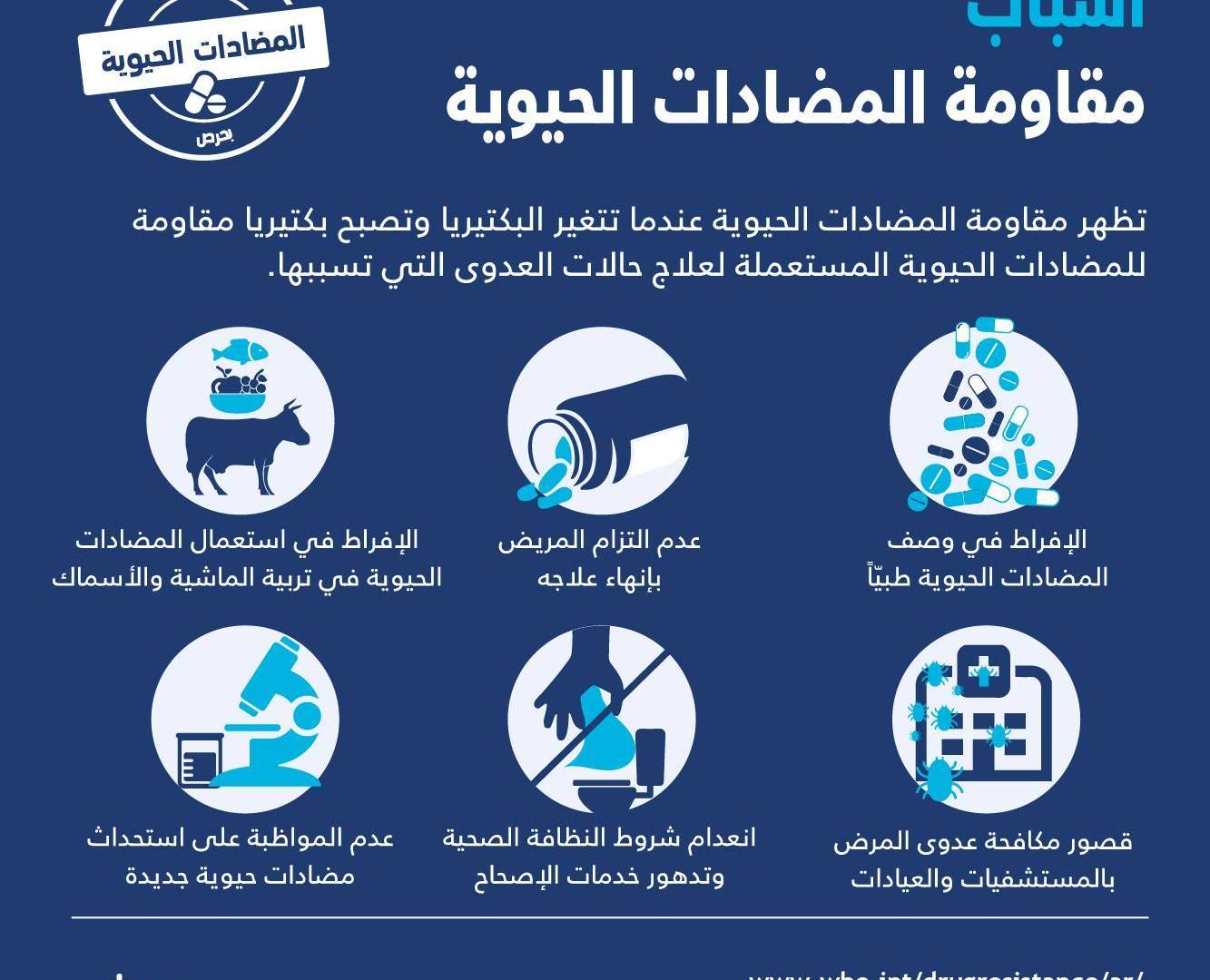A report by the World Health Organization - based on data collected from 87 countries in 2020 - showed that the year that witnessed the beginning of the outbreak of the Corona virus pandemic also witnessed an increase in the resistance of bacteria that cause infection in the bloodstream to medicines, even antibiotics that are resorted to as a last resort.
The overuse or misuse of antibiotics has contributed to microbes becoming resistant to many drugs, at a time when the pace of development of alternative therapies is alarmingly slow.
High levels of resistance
Participants in the report pointed out on Friday that high levels of resistance, more than 50%, were detected in bacteria - which usually cause serious infections in the bloodstream - that threaten life in hospitals, such as Klebsiella pneumoniae and a type of Acinetobacter.
Such infections usually require treatment with "last resort" antibiotics, which are drugs used when all other antibiotics have failed.
Dr. Karmim Pessoa-Silva, director of antimicrobial resistance monitoring at the World Health Organization, said - in a press conference - that antibacterial resistance rates are still very high, but antibiotics that are used as a last resort have only recently begun to lose effectiveness.
"We have a very limited window of opportunity ... to deal with that threat," she added.
Although there have been concerted efforts to reduce unwarranted use of antibiotics, the pace of new research remains slow.
The reluctance of drug manufacturers
Factors - including the effort, cost, time required to approve a new antibiotic and the limited return on investment - discouraged drug manufacturers, as drugs must be cheaply priced and are originally designed for minimal use to reduce drug resistance.
As a result, there are a few biopharmaceutical companies that have the lion's share of antibiotic research and development, as other, larger companies focus on more profitable markets and products.
There are only a few major companies left in this field, down from more than 20 companies in the 1980s.
An important global analytical study - the results of which were published this year - concluded that 1.2 million people died in 2019 due to antibiotic-resistant bacterial infections, making this one of the main causes of death around the world, in greater numbers, caused by HIV. /AIDS) or malaria.
The participants indicated - in the WHO report - that more research is needed to determine the reasons for the jump in the resistance of these bacteria to antibiotics, in the period covered by the study, and to find out to what extent this is related to the increased use of antibiotics during the pandemic.

